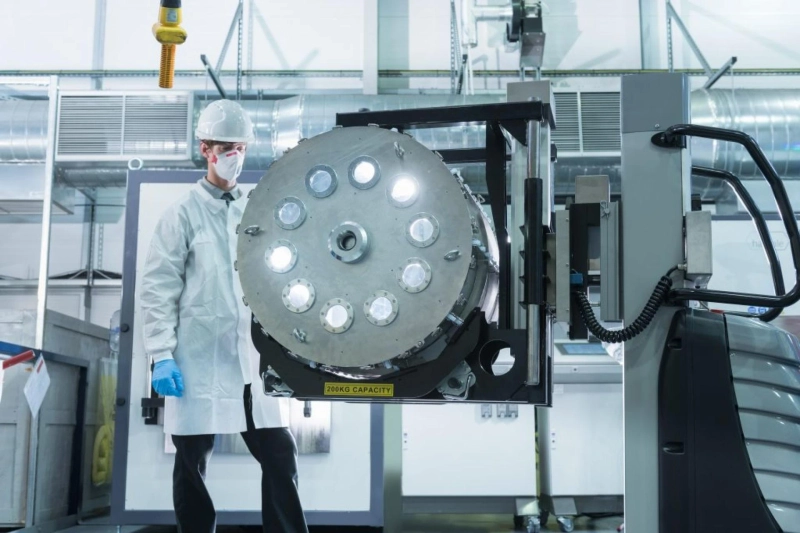In the ever-evolving landscape of manufacturing, ensuring efficiency, quality, and compliance within the production process is paramount. One effective tool that aids in achieving these objectives is the manufacturing process audit. This article will delve into the purpose and advantages of conducting manufacturing process audits, highlighting their significance in today's competitive industry.
What Is A Manufacturing Process Audit?
A manufacturing process audit is a systematic examination and evaluation of the various stages involved in the production process. It involves a comprehensive review of manufacturing practices, procedures, and controls to identify areas for improvement, detect deviations from established standards, and enhance overall operational performance.
Purpose Of Manufacturing Audits:
Quality Assurance
One of the primary purposes of Manufacturing Audits is to ensure consistent quality throughout the production cycle. By meticulously assessing each step of the manufacturing process, audits help identify any quality issues or deviations from desired specifications. This proactive approach allows manufacturers to address potential problems before they escalate, resulting in improved product quality and customer satisfaction.
Compliance Verification
Manufacturing audits play a crucial role in verifying compliance with industry standards, regulations, and legal requirements. These audits help manufacturers ensure that their operations align with applicable guidelines, codes, and regulations. By conducting regular audits, companies can mitigate the risk of non-compliance, avoiding penalties, reputational damage, and potential legal consequences.
Process Optimization
By conducting manufacturing audits, organizations gain valuable insights into their operations. These audits facilitate the identification of inefficiencies, bottlenecks, and areas for improvement. With a comprehensive understanding of the existing processes, manufacturers can implement targeted enhancements to streamline operations, reduce waste, increase productivity, and enhance overall efficiency.
Advantages Of Manufacturing Audits:
Enhanced Productivity
Manufacturing audits provide a holistic view of the production process, enabling companies to identify and eliminate factors that impede productivity. By streamlining workflows, optimizing resource allocation, and identifying potential areas for automation, audits can significantly enhance productivity levels. Improved productivity translates into cost savings, shorter lead times, and increased capacity to meet customer demands.
Risk Mitigation
Identifying and mitigating risks is crucial for sustainable manufacturing operations. Process audits help identify potential risks and vulnerabilities in the production process, including equipment malfunctions, inadequate training, or material deficiencies. By proactively addressing these issues, companies can minimize downtime, reduce the likelihood of accidents or product failures, and protect their reputation.
Continuous Improvement
Manufacturing audits foster a culture of continuous improvement within organizations. By regularly evaluating their processes, manufacturers can identify opportunities for innovation, embrace new technologies, and implement best practices. This commitment to continuous improvement enables companies to stay competitive, adapt to changing market dynamics, and enhance their overall business performance.
Supplier Evaluation And Management
Manufacturing audits can extend beyond internal operations to encompass the evaluation and management of suppliers. Audits help assess the capabilities, quality control measures, and compliance adherence of suppliers. By conducting thorough audits, manufacturers can make informed decisions when selecting suppliers, ensuring that they meet the required standards and contribute to the overall quality and efficiency of the manufacturing process.
Data-Driven Decision Making
Manufacturing audits generate a wealth of data and insights that can be utilized for data-driven decision-making. By analyzing audit findings, manufacturers can identify trends, patterns, and areas of improvement with precision. This data-driven approach enables informed decision-making, facilitates strategic planning, and guides resource allocation for optimal results.
Customer Satisfaction And Trust
A well-executed manufacturing process audit reflects a company's commitment to quality and customer satisfaction. By consistently conducting audits and addressing any issues identified, manufacturers can enhance product quality, reduce defects, and deliver reliable products to their customers. This fosters trust and loyalty among customers, positioning the company as a reliable and reputable manufacturer in the market.
Regulatory Compliance And Certification
Manufacturing s audits play a critical role in ensuring regulatory compliance and obtaining industry certifications. Audits help manufacturers assess their compliance with industry-specific standards such as ISO, FDA regulations, or environmental regulations. By demonstrating adherence to these standards through audits, companies can achieve certifications, giving them a competitive edge and opening up new business opportunities.
Employee Engagement And Empowerment
Manufacturing audits can also have a positive impact on employee engagement and empowerment. When employees are involved in the audit process, such as through conducting self-audits or participating in audit activities, they gain a deeper understanding of the production process and their role in ensuring quality. This involvement fosters a sense of ownership, encourages collaboration, and empowers employees to contribute to continuous improvement initiatives.
Supply Chain Resilience
Manufacturing audits contribute to supply chain resilience by assessing the reliability and robustness of the manufacturing process. By identifying potential vulnerabilities and risks, audits enable manufacturers to implement mitigation strategies and contingency plans. This resilience ensures uninterrupted supply chain operations, even in the face of unexpected disruptions, ultimately safeguarding customer satisfaction and business continuity.
Conclusion
Manufacturing Process Audits are invaluable tools that enable organizations to maintain quality, ensure compliance, and optimize their production processes. By conducting regular audits, manufacturers can identify areas for improvement, enhance productivity, mitigate risks, and foster a culture of continuous improvement. In today's dynamic manufacturing landscape, embracing process audits is essential for sustained success and growth.


